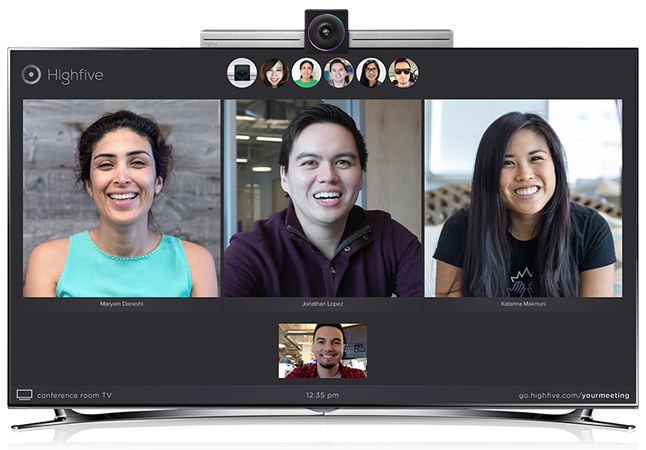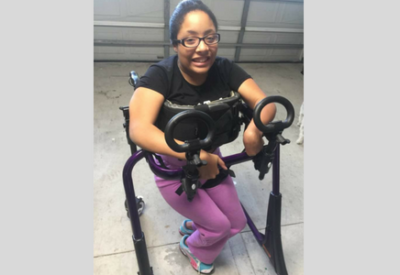Did you know that Self-Confidence is the top issue as to why women hate using video conferencing?
In June, I had the opportunity to video conference with Nisha Ahluwalia, chief marketing officer of Highfive, a video conferencing company. She is a woman full of energy, has a passion for empowering others, juggles having a career and being a great mother, and continues to showcase her success in the work force.
Highfive recently partnered with a polling firm to find out how video conferencing makes people feel. More than 800 working adults were asked how they feel and what they do in video conferences. One recurring theme for both men and women was self-consciousness – but more prevalent among women.
Interesting Piece of Data
For me one of the most interesting piece’s of data was:
- Women think they’re less attractive on camera than in real life and to make up for that, they often spend more time primping than preparing for the meeting itself.
Why are we so concerned with showing off our looks instead of our brains, especially in the workplace? Shouldn’t we be more concerned with asserting our intelligence and gaining the self-respect from our male counterparts in the office, instead of purporting the gender stereotype that women are only as good as their looks?
Video conferencing can be a useful tool in the workplace, connecting people from around the world in real time and enhancing the value of face-to-face interactions. However, if we are lacking in the self-love department and spend more time preparing our look rather than on the actual content for the meeting, not only will we not glean all of the value from the useful tool, we’ll miss out on opportunities to showcase our talent and solidify our position as experts in our respective area of responsibility, diminishing the level of respect and confidence our colleagues and/or bosses have for us, and reducing the possibility or the rate at which we can move up the career ladder. As women in the workforce, we’re still fighting an equality battle with our male counterparts – from equal pay to equal opportunity for promotions. While we have made tremendous strides in the past few decades, we can’t afford to take a step back.
Noone Really Cares
One of the really ironic things about this survey was that while people tend to be very self-conscious about their appearance, this ultimately is not what matters to their coworkers on the other side of the screen.
Coworkers are more focused on a person’s preparedness and professionalism.
I mean think about it, wouldn’t you rather have your coworker be prepared for the call then spend hours getting ready and not bring anything to the table? I would. If you do your homework in advance of the call and show respect for your colleagues to adequately prepare (i.e., don’t be part of the 11 percent of people who’ve joined a video call without pants on), you really don’t have much to worry about. If you exude confidence and demonstrate your intelligence by delivering a well-prepared presentation, you’ll do more to further your career than if you had just focused on how you look on camera. You can look professional without looking like you just came from a modeling gig.
So what can you do now?
Be part of the change. I get it. We all stare at ourselves in the mirror before we have to go on video or head to a meeting to make sure we have nothing in our teeth and we look professional, but there is a difference between getting ready vs. spending all your time and energy on your looks alone.
This obsession and constant worry about your looks is bad for productivity, bad for your self-esteem and just plain bad for your overall well being,  especially since it turns out …no one really cares.
especially since it turns out …no one really cares.
So to be part of this change and to help you gain confidence, Highfive shared some great tips:
- Show some common courtesy: Unshockingly, a lot of people got annoyed with those who arrive to meetings unprepared, get distracted or take the call from a noisy location. There’s an easy fix for those things — don’t do them. Act courteously and you can expect to receive respect in return.
- Get to know your coworkers: According to our findings, people who worked alongside their coworkers in an office were much more likely to enjoy video conferencing than those who worked from home. Practice makes perfect — the more you get to know somebody, the more comfortable you’ll likely be with them on a video call.
- Think like a CEO: Out of everyone surveyed, C-level executives rated themselves as being the most attractive. Even if you’re at an entry-level position, you can use this info to your advantage by faking it ‘til you make it. In the end, the appearance of confidence can be just as convincing as the real thing.
So the next time you’re on a video call, try to breathe. Odds are, you’re not the only person who’s worried about your appearance — but you’re probably the only one worried about what you look like. If you can make “No one cares what I look like” your new mantra when preparing for that big meeting, you might just start to become a little more comfortable in your own skin and begin to effortlessly exude confidence while gaining the respect of your colleagues.
Beauty and confidence is contagious.
As woman we continue to struggle to be known for our brains over beauty, and here is another reason to put those thoughts to rest and show them what you are made of!






3 Comments “Self-Confidence: The Top Issue Why Women Hate Using Video Conferencing and How it Can Affect Your Work”
I really appreciate your post and you explain each and every point very well.Thanks for sharing this information.And I’ll love to read your next post too. Read More at: http://vibrantwave.com
Thanks for the excellent content. Wish to see even more shortly. Thanks again and keep up the great work!
Comments are closed.